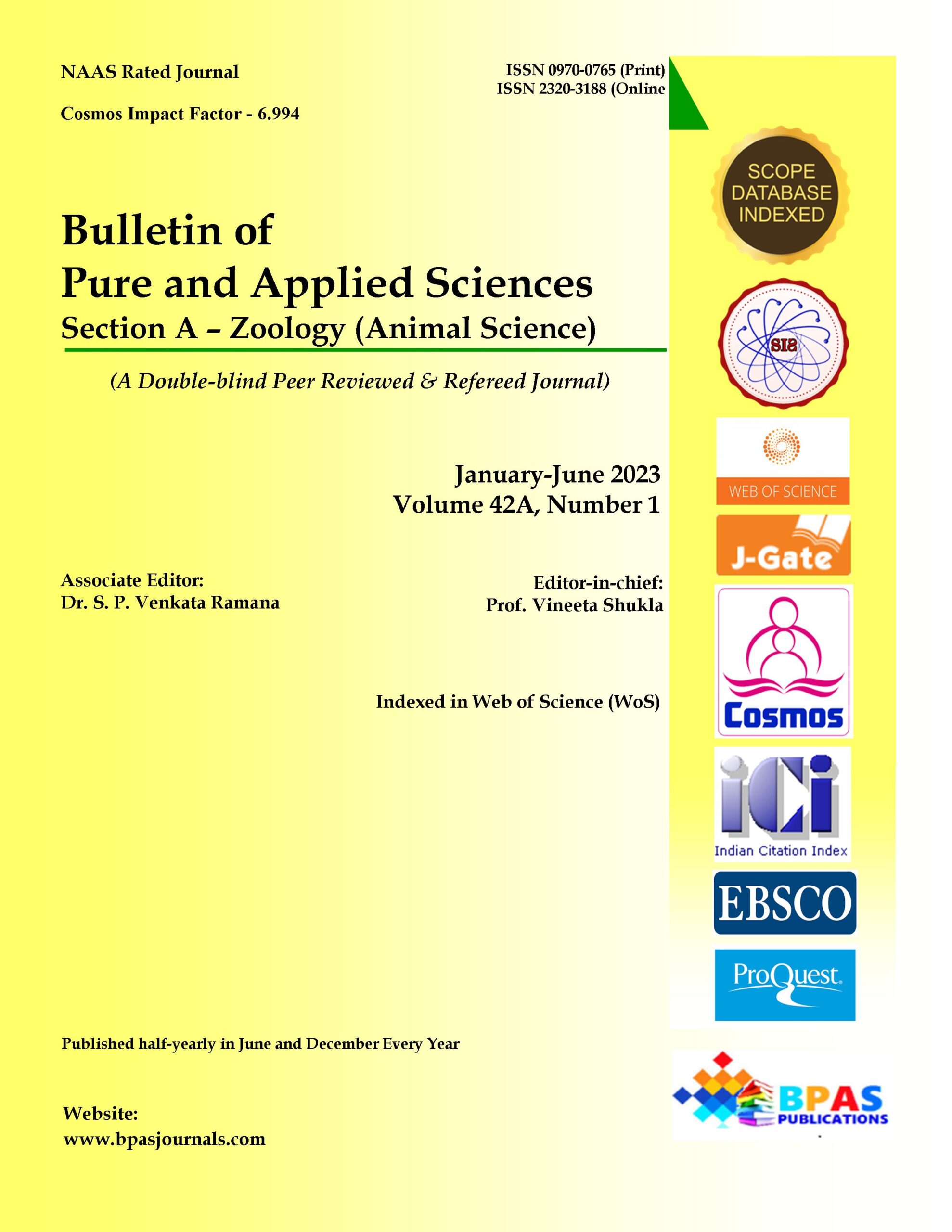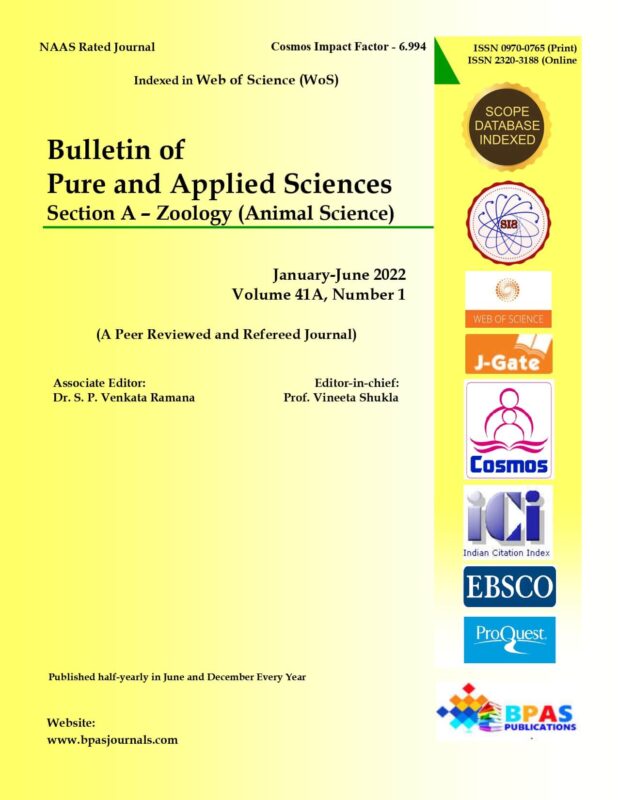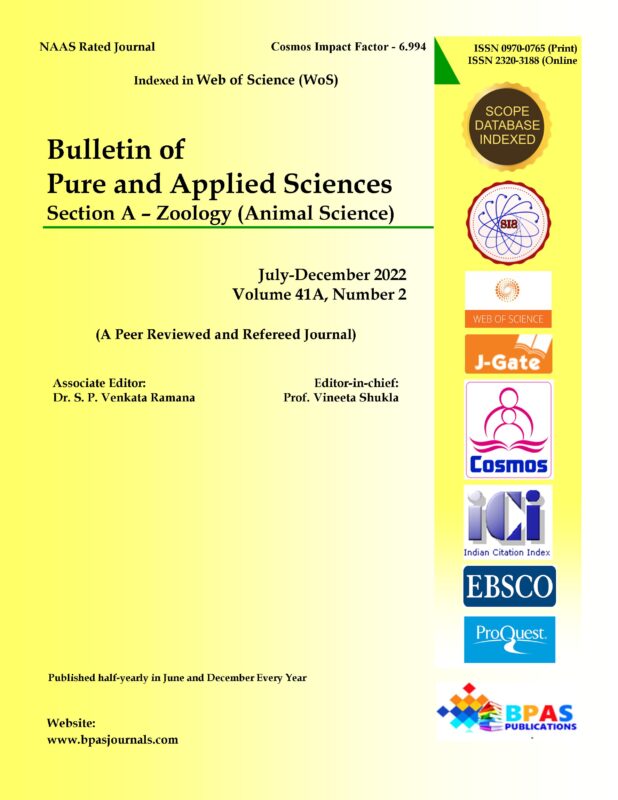Screening of Spider Venom Peptides and Molecular Docking of FLT3 and LCK
9.38$
Screening of Spider Venom Peptides and Molecular Docking of FLT3 and LCK
Durgesh M. Agase
Bulletin of Pure and Applied Sciences
Zoology (Animal Science), Vol.42A, No.1,
January-June 2023: P.149-156
DOI: 10.48165/bpas.2023.42A.1.13
Original Research Article
Description
Screening of Spider Venom Peptides and Molecular Docking of FLT3 and LCK
Durgesh M. Agase
| Author’s Affiliation:
Assistant Professor, Department of Zoology, Govt Jatashankar Trivedi College, Balaghat, Madhya Pradesh 481101, India
|
| *Corresponding author:
Dr. Durgesh M. Agase, Assistant Professor, Department of Zoology, Govt Jatashankar Trivedi College, Balaghat, Madhya Pradesh 481101, India E-mail: sbt.durgesh@gmail.com Article Info: Received on 27.02.2023 Revised on 05.05.2023 Approved on 19.05.2023 Accepted on 26.05.2023 Published on 16.06.2023
|



